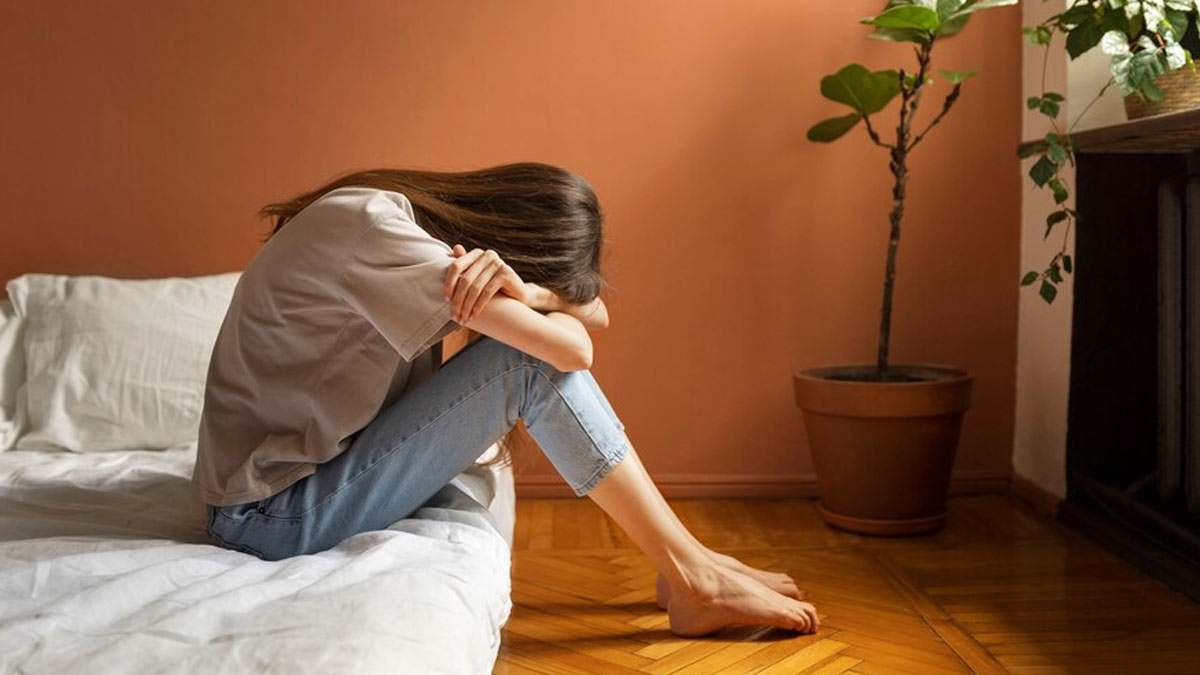
Loneliness is more than just an unfortunate life circumstance. The mental impact of loneliness goes far beyond making us feel sad, as it can have far reaching implications on your health. The World Health Organisation (WHO) has recently recognised loneliness as a significant global health concern, paralleling its impact to smoking 15 cigarettes daily in terms of health risks.
Table of Content:-
To address this issue, WHO has initiated an international commission aimed at promoting social connections and implementing solutions across various income levels globally. Dr Tedros Adhanom Ghebreyesus, WHO's Director-General, stated that social isolation and loneliness pose serious health risks, including heightened vulnerability to stroke, anxiety, dementia, depression, suicide, among others.

Health Risks of Loneliness
The US Surgeon General, Dr Vivek Murthy, echoed these concerns, highlighting that loneliness's health risks are comparable to smoking and even surpass those associated with obesity and physical inactivity.
Loneliness has been linked to a 50% increased risk of dementia and a 30% increased risk of coronary artery disease or stroke in older adults. Despite these alarming statistics, the actual prevalence of loneliness among adolescents remains underestimated, ranging from 5% to 15%.
According to the Centres for Disease Control and Prevention, the negative physical and mental health effects of loneliness are:
- Fatigue
- Disrupted sleep patterns
- Chronic pain
- Increased risks of cardiovascular diseases Premature mortality.
- Decreased confidence
- Hopelessness
- Anxiety
- Lack of motivation
Also Read: Loneliness, Social Isolation Are Genuine Public Health Issues, Says WHO In Its ‘Call For Experts

Coping With Loneliness
One major issue about coping with loneliness is that individuals often resort to unhealthy coping mechanisms like smoking, excessive drinking, physical inactivity, or poor dietary habits when dealing with loneliness.
Loneliness is a subjective emotional state characterised by a sense of isolation, even when surrounded by others. Factors contributing to loneliness include generational gaps, changes in family structures (such as more nuclear families), excessive social media usage, and financial instability. The COVID-19 pandemic has exacerbated loneliness due to restricted social interactions and economic disruptions.
While there's no one-size-fits-all solution for loneliness, here are some practical tips to cope with it:
- Cultivate self-care rituals: Develop personalised self-care routines encompassing mental, physical, and emotional well-being.
- Pursue hobbies and activities: Engage in activities that bring joy and allocate dedicated time for interests like art, sports, or outdoor adventures.
- Volunteer: Dedicate time to meaningful social engagements, such as volunteering for charitable causes or community services.
- Nourish relationships: Foster meaningful connections and build a support network to combat loneliness.
- Practice mindfulness: Incorporate mindfulness practices like meditation and self-reflection to reframe thoughts and emotions positively.
- Seek professional support: Don't hesitate to seek professional help from counsellors or therapists if loneliness persists or affects daily functioning.
Also Read: The Dangers of Loneliness: Study Suggests It Can Increase The Risk of Dementia
Loneliness, recognised by the WHO as a profound global health concern, mirrors the health risks of smoking and surpasses those of obesity and physical inactivity. Its impact extends beyond mental well-being, affecting physical health with increased risks of dementia, cardiovascular diseases, and premature mortality. Coping strategies, including self-care rituals, pursuing hobbies, volunteering, nurturing relationships, mindfulness practices, and seeking professional support, are crucial in combating loneliness and safeguarding overall health.
Also watch this video
How we keep this article up to date:
We work with experts and keep a close eye on the latest in health and wellness. Whenever there is a new research or helpful information, we update our articles with accurate and useful advice.
Current Version